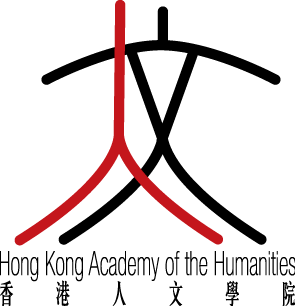Frank DIKÖTTER 馮客 (Fellow)
Fields of Study:
'Race', China under Mao, Crime and Punishment, Drugs, Material Objects, Photography
Profile:
Frank Dikötter is Chair Professor of Humanities and Professor at the Department of History at the University of Hong Kong.
He is the author of Mao's Great Famine: The History of China's Most Devastating Catastrophe published by Bloomsbury and Walker Books. The book was selected as one of the Books of the Year in 2010 by The Economist, The Independent, the Sunday Times, the London Evening Standard (selected twice), The Telegraph, the New Statesman and the BBC History Magazine, and is on the longlist for the 2011 Samuel Johnson Prize for non-fiction.
Born in the Netherlands in 1961, he was educated in Switzerland and graduated from the University of Geneva with a Double Major in History and Russian. After two years in the People's Republic of China, he moved to London where he obtained his PhD in History from the School of Oriental and African Studies (SOAS) in 1990. He stayed at SOAS as British Academy Postdoctoral Fellow and as Wellcome Research Fellow before being promoted to a personal chair as Professor of the Modern History of China in 2002. He moved to Hong Kong in 2006. His research and writing has been funded by over 1.5 US$ million in grants from various foundations, including, in Britain, the Wellcome Trust, the Arts and Humanities Research Council, The Economic and Social Research Council and, in Hong Kong, the Research Grants Council and the Chiang Ching-kuo Foundation.
He has published nine books that have changed the ways historians view modern China, from the classic The Discourse of Race in Modern China (1992) to China before Mao: The Age of Openness (2007). Frank Dikötter is married and lives in Hong Kong.
Current research project:
The Making of the Cult of Personality in the Twentieth Century
Image and power have always been closely related, but in the twentieth century a new phenomenon appeared that went well beyond the public veneration of influential individuals, namely the cult of personality. In an age of democracy, when power was no longer seen to be a divine attribute but was vested in the people instead, the cult of personality was used by one-party states to achieve the illusion of popular approval without ever having to resort to elections. By closely studying the cult of personality built around eight leaders, the project adopts a comparative approach: dictators did not exist in a vacuum, they learned from each other. Mao was a keen student of Stalin, while Hitler closely observed Mussolini. Dictators visited each other, spoke to each other, corresponded with each other, and often sent large delegations to study all aspects of government, including the cult of personality and propaganda more generally. Personality cults, of course, changed over time, and not only as a result of new technologies such as radio and television. Some of the most momentous changes in international politics are related to the cult of personality, in particular Khrushchev's denunciation of Stalin in 1956, which set off a chain reaction among allies in the socialist camp. Paradoxically, the Sino-Soviet rift encouraged the spread of personality cults in China and North Korea. As the initiative shifted to Asia, leaders such as Ceausescu and Mengistu visited Pyongyang instead of Moscow to learn the ropes.
Links:
Is this you? If you want to update your profile, click here to let us know.

